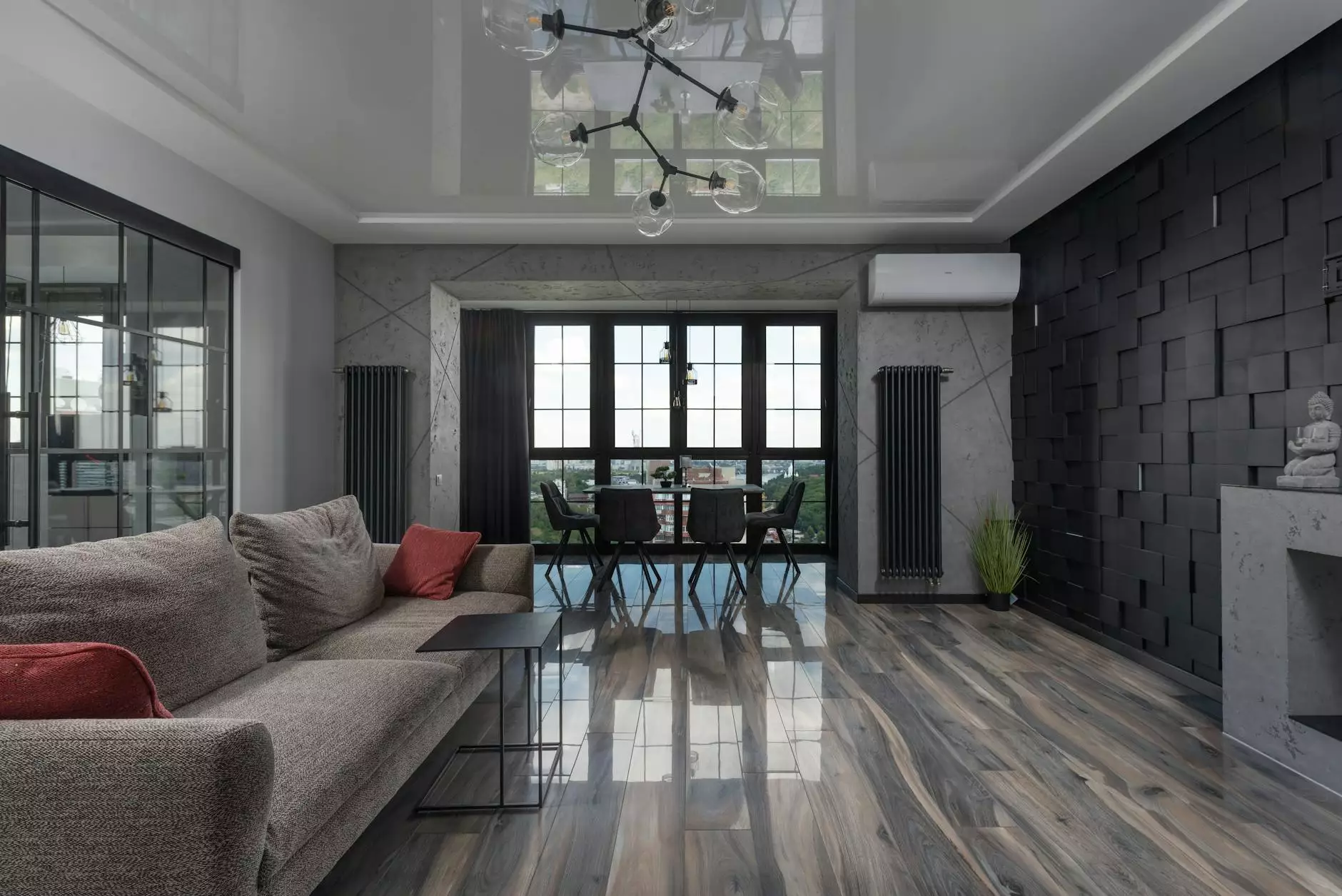Ultimate Guide to Home Air Conditioner Purchase: Expert Tips for Efficient Cooling

In today’s climate-conscious world, making an informed home air conditioner purchase is essential for maintaining a comfortable, healthy indoor environment while optimizing energy efficiency. Whether you’re upgrading an existing system or installing an air conditioner for the first time, understanding the key factors influencing your decision is critical. This comprehensive guide offers in-depth insights, guiding you through every step of selecting the perfect cooling solution tailored to your needs.
Understanding the Importance of Choosing the Right Air Conditioning System
The right home air conditioner does more than just cool your space—it's an investment in your comfort, health, and energy bills. Proper selection impacts indoor air quality, cost savings, and overall lifespan of the system. A well-chosen air conditioner can significantly reduce humidity levels, prevent mold growth, and improve overall air circulation, leading to a healthier living environment.
Types of Air Conditioning Systems for Residential Use
When considering a home air conditioner purchase, it's crucial to understand the various types of systems available. Each has unique features, benefits, and installation requirements.
Central Air Conditioning Systems
Central AC units are the most common choice for whole-home cooling. They consist of an outdoor condenser, an indoor evaporator coil, and a ductwork system that distributes cooled air throughout the residence. Central systems are ideal for larger homes due to their efficiency and ability to provide uniform cooling across multiple rooms.
Ductless Mini-Split Systems
These systems are perfect for homes without existing ductwork. They comprise an outdoor compressor unit and one or more indoor air handlers. Ductless mini-split systems offer zoning capabilities, allowing individual room temperature control, which enhances energy savings and personalized comfort.
Window Units
Window AC units are portable and easy to install, making them suitable for small spaces or secondary rooms. While less efficient for whole-home cooling, their affordability and simplicity make them a popular choice for renters or temporary setups.
Portable Air Conditioners
Similar to window units, portable ACs are mobile and require no permanent installation. They are best for spot cooling and complement secondary climate control needs within the home.
Key Factors to Consider During Your Home Air Conditioner Purchase
Making an informed decision requires evaluating various factors to ensure the system aligns with your home’s specifics and your expectations.
Cooling Capacity and Size
Choosing an air conditioner with the correct BTU (British Thermal Units) rating is vital. An undersized unit will struggle to cool your space efficiently, leading to increased energy consumption and wear. An oversized system wastes energy and may cause short cycling, reducing lifespan and humidity control. Conduct a thorough cooling load calculation based on your home's size, insulation, window orientation, and occupancy to determine the ideal capacity.
Energy Efficiency and SEER Ratings
Energy efficiency directly impacts long-term savings. Look for systems with higher SEER (Seasonal Energy Efficiency Ratio) ratings. Modern units with SEER ratings of 16 or higher are recommended, as they consume less power for the same cooling output, translating into reduced utility bills and a smaller carbon footprint.
Filtration and Indoor Air Quality
Premium air conditioners come with advanced filtration systems that remove dust, allergens, and pollutants, significantly improving indoor air quality. For allergy sufferers or those with respiratory issues, selecting units with HEPA filters or air purification features can be a game-changer.
Installation and Maintenance Requirements
A proper installation is essential for optimal performance. Incorrectly installed units can lead to inefficiency, higher energy bills, and system failure. Choose a certified HVAC professional for installation. Consider maintenance needs—units with accessible filters and straightforward servicing instructions tend to last longer and operate more efficiently.
Cost and Budget Considerations
While initial investment matters, consider the total cost of ownership, including energy consumption, maintenance, and potential repairs. Investing in a high-quality, energy-efficient system may have a higher upfront cost but can save significant amounts over its lifespan.
Energy Efficiency: The Cornerstone of Modern Home Air Conditioner Purchase
In today’s eco-conscious world, energy-efficient air conditioning systems are no longer optional—they are essential. High SEER ratings, inverter technology, and advanced insulation contribute to substantial energy savings. Additionally, energy-efficient units help reduce greenhouse gas emissions, contributing to a healthier planet.
Understanding Inverter Technology
Inverter air conditioners adjust compressor speed based on cooling demand, resulting in consistent temperature control and lower energy consumption compared to traditional units. They are quieter, more durable, and offer better humidity management.
Smart Features and IoT Compatibility
Modern AC units with smart technology allow remote control via mobile apps, programmable schedules, and integration with home automation systems. These features facilitate energy efficiency by reducing unnecessary operation and providing real-time efficiency monitoring.
Installation Tips and Post-Purchase Maintenance for Longevity
Proper installation ensures your investment performs to its full potential. Choose experienced HVAC technicians who adhere to manufacturer specifications. Post-installation, regular maintenance such as filter changes, coil cleaning, and system inspections prolong the system’s lifespan, enhance efficiency, and prevent costly breakdowns.
Seasonal Maintenance Checklist
- Change filters every 1-3 months for optimal airflow and air quality.
- Clean coils annually to prevent debris buildup that hampers heat exchange.
- Inspect ductwork for leaks or obstructions, especially in central systems.
- Schedule professional tune-ups at the beginning of each cooling season.
Environmental Benefits of an Efficient Home Air Conditioner
Efficient cooling systems reduce energy consumption, resulting in a smaller carbon footprint. Use of environmentally friendly refrigerants with low ozone depletion potential, coupled with energy-saving features, further enhances the eco-friendliness of your home air conditioner purchase. Sustainable cooling not only benefits the planet but also leads to lower utility bills, providing both environmental and financial advantages.
Conclusion: Make an Informed and Confident Home Air Conditioner Purchase
Choosing the right home air conditioner is an investment in comfort, health, and savings. By understanding the different types of systems, evaluating energy efficiency features, considering the size and capacity, and ensuring professional installation and maintenance, you can make a decision that ensures optimal performance for years to come. With continuous advancements in HVAC technology, now is the perfect time to upgrade or install a new, efficient cooling system that meets your specific needs.
For expert guidance and professional installation services, trust dihaairconditioning.com, your top choice for Heating & Air Conditioning/HVAC solutions. Our team of certified technicians is committed to helping you achieve maximum comfort and energy efficiency with the latest in HVAC technology.
Take Action Today for Cool, Comfortable, and Energy-Efficient Living
Don’t wait until the peak of summer heat to realize your cooling system isn’t up to par. Begin your journey toward a more comfortable home by opting for a home air conditioner purchase that aligns with your needs, budget, and environmental goals today. Contact us at dihaairconditioning.com for a consultation, and let our HVAC professionals guide you to the perfect cooling solution.









